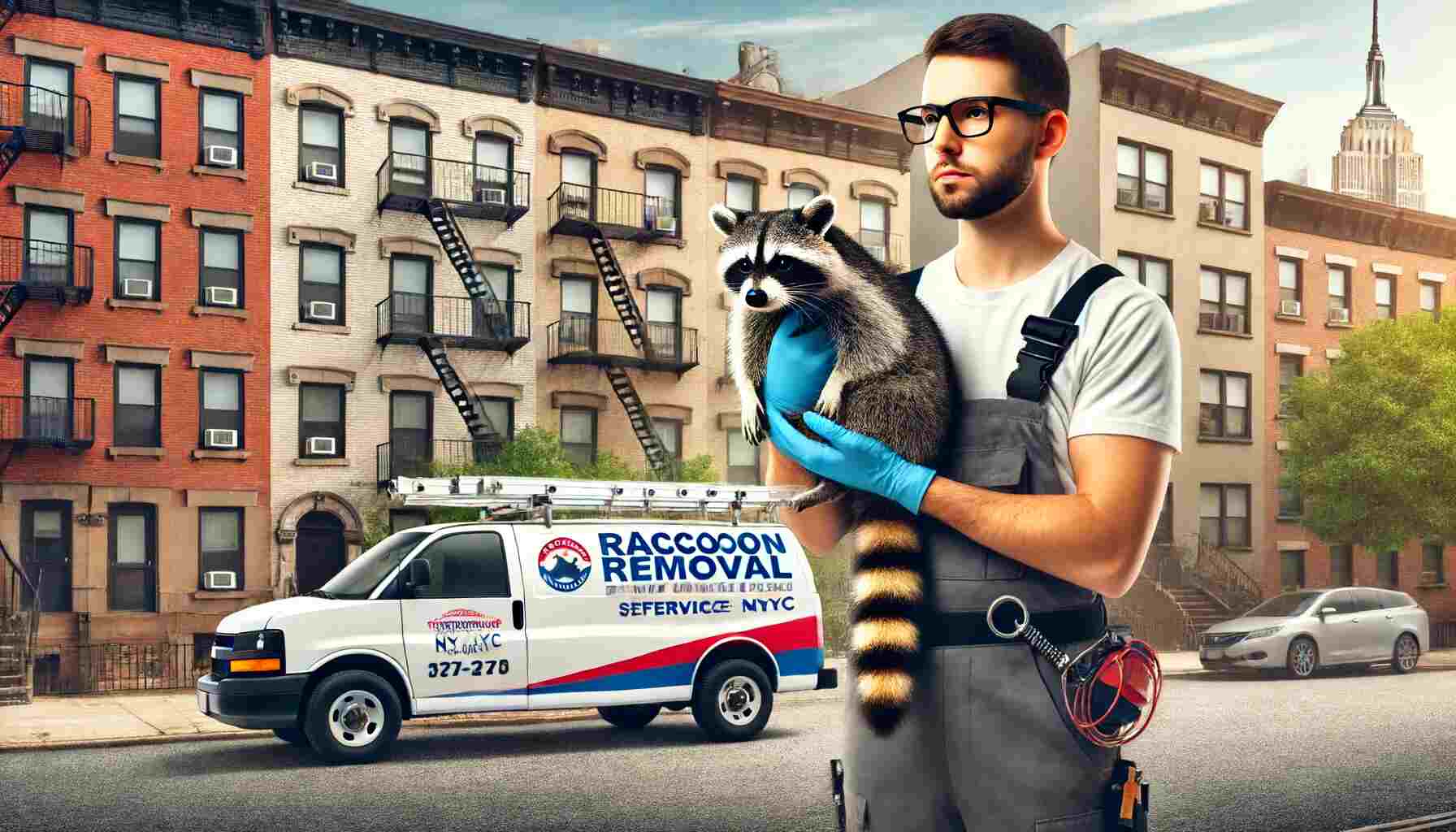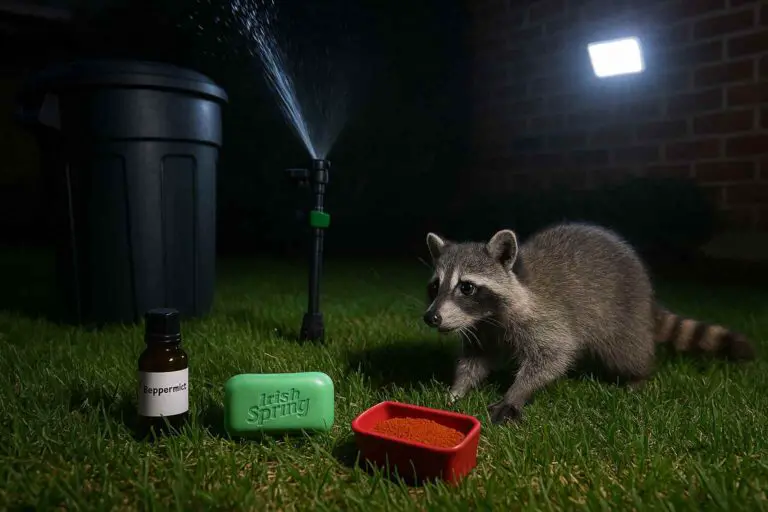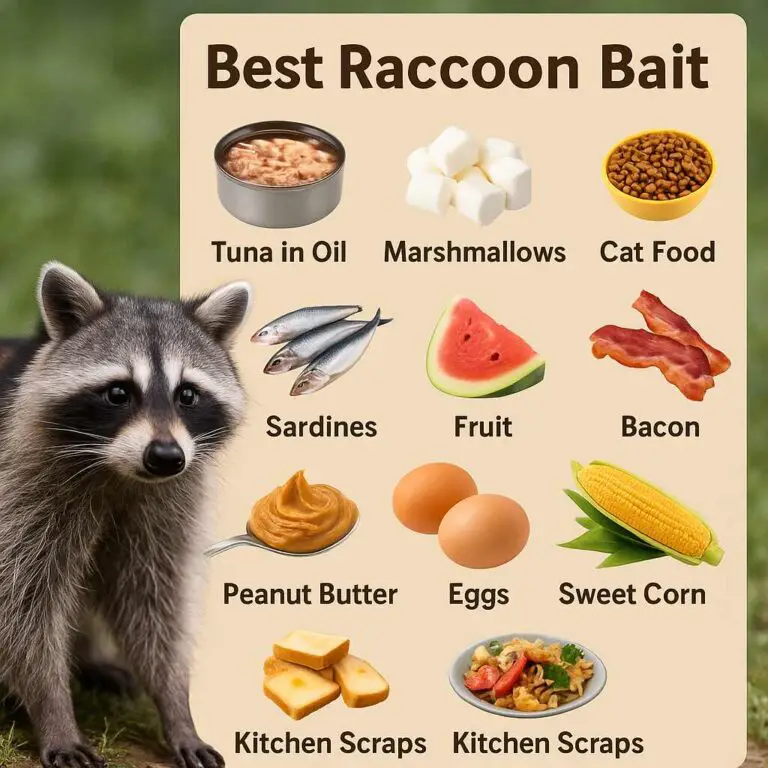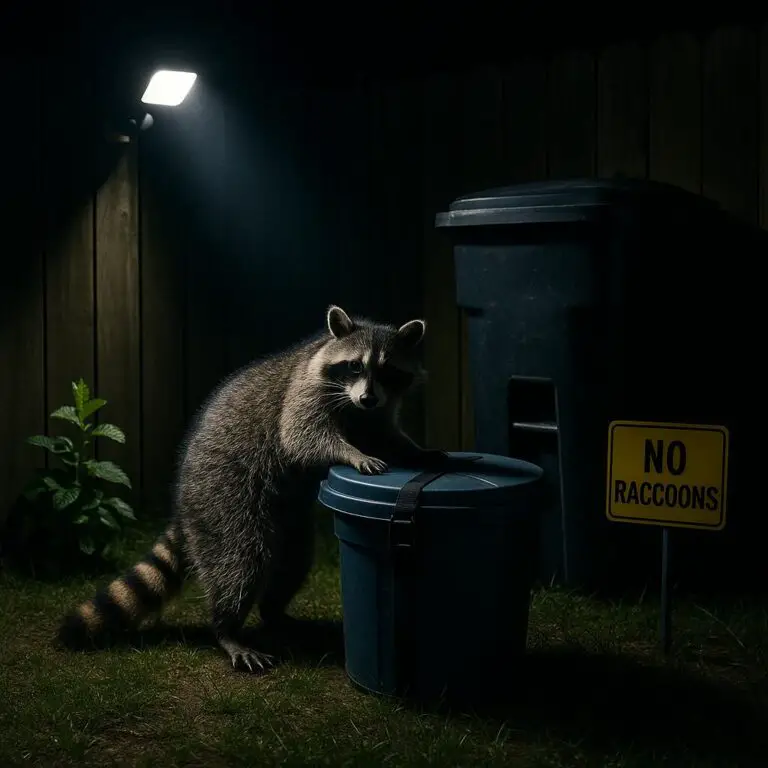Raccoons are common urban wildlife in New York City, often seen rummaging through trash cans, nesting in attics, and causing various nuisances. This guide aims to provide a thorough understanding of raccoon removal services in NYC, covering everything from why removal is necessary to how to choose the best service provider.
Understanding the Need for Raccoon Removal
Health Risks
Raccoons are potential carriers of various diseases, such as rabies, leptospirosis, and raccoon roundworm. Rabies is particularly concerning because it can be transmitted to humans and pets through bites or scratches. The New York City Department of Health reports multiple cases of rabid raccoons each year, emphasizing the importance of professional removal services .
Property Damage
Raccoons can cause significant damage to properties. They are known to:
- Tear off shingles and fascia boards to access attics.
- Chew through insulation and electrical wiring, posing fire hazards.
- Contaminate areas with urine and feces, creating health hazards and unpleasant odors.
Nuisance
Raccoons are nocturnal, meaning they are most active at night. Their activities can lead to sleepless nights due to the noise they make while searching for food or nesting materials.
Identifying a Raccoon Infestation
Common Signs
Recognizing the signs of a raccoon infestation is crucial for timely intervention. Look for:
- Noises: Scratching, thumping, or chattering sounds, especially at night.
- Damage: Torn shingles, damaged vents, and gnawed electrical wiring.
- Tracks: Raccoon tracks often look like small human handprints.
- Droppings: Raccoon feces are cylindrical and often found in attics or near entry points.
Inspection
A thorough inspection by a professional is recommended to confirm an infestation and identify entry points. They can provide a detailed plan for removal and prevention.
Choosing the Right Raccoon Removal Service in NYC
Licensing and Certification
Ensure that the service provider is licensed and certified by relevant authorities, such as the New York State Department of Environmental Conservation. Licensed professionals follow humane and legal methods for wildlife removal.
Experience and Expertise
Look for companies with extensive experience in raccoon removal. Experienced professionals can handle various situations, from attic infestations to raccoons trapped in chimneys.
Humane Removal Methods
Humane removal methods are essential for ethical reasons and legal compliance. Methods include:
- Live trapping and relocation: Capturing the raccoon without harm and releasing it in a designated wildlife area.
- Exclusion: Sealing entry points to prevent re-entry after removal.
- Deterrents: Using repellents and other methods to discourage raccoons from returning.
Comprehensive Services
Choose a company that offers a complete range of services, including:
- Inspection and assessment
- Removal and exclusion
- Damage repair and cleanup
- Prevention and maintenance plans
Reviews and References
Check online reviews and ask for references to gauge the reputation and reliability of the service provider. Websites like Yelp, Google Reviews, and Better Business Bureau are good places to start.
Cost and Warranty
Request a detailed estimate and inquire about warranties or guarantees. Some companies offer warranties on their exclusion work, ensuring raccoons won’t re-enter for a specified period.
The Raccoon Removal Process
Inspection and Assessment
The process begins with a thorough inspection to identify the extent of the infestation, entry points, and potential hazards. Professionals use tools like thermal cameras and motion sensors for a comprehensive assessment.
Removal
Based on the assessment, professionals use appropriate removal methods. Live trapping is common, where raccoons are baited into traps and then relocated. In some cases, one-way exclusion devices are used, allowing raccoons to exit but not re-enter.
Damage Repair and Cleanup
Raccoons often leave behind significant damage and contamination. Professionals repair damage to roofs, vents, and insulation. Cleanup involves removing feces and urine, sanitizing affected areas, and deodorizing to eliminate odors.
Prevention
To prevent future infestations, professionals seal entry points, such as gaps in roofs, vents, and chimneys. They may also install deterrents, like motion-activated lights and sprinklers, to discourage raccoons.
DIY Raccoon Removal: Pros and Cons
While DIY raccoon removal might seem cost-effective, it has several drawbacks and risks.
Pros
- Cost Savings: DIY methods are generally cheaper upfront.
- Immediate Action: You can take immediate action without waiting for a professional.
Cons
- Safety Risks: Raccoons can be aggressive when cornered, posing injury risks.
- Ineffectiveness: DIY methods often fail to address the root cause of the infestation, leading to recurrence.
- Legal Issues: Improper handling of wildlife can result in legal penalties.
Recommended Products for DIY
If you choose to attempt DIY removal, consider using the following products, available on Amazon:
- Live Animal Traps: Havahart Live Animal Cage Trap
- Raccoon Repellents: Bonide Repels-All Animal Repellent
- Exclusion Materials: Hardware Cloth
Legal Considerations
In NYC, certain laws govern the handling of wildlife. The New York State Department of Environmental Conservation (NYSDEC) provides guidelines for humane and legal wildlife removal. Violating these regulations can result in fines and other penalties.
Frequently Asked Questions (FAQs)
How much does raccoon removal cost in NYC?
The cost varies based on the extent of the infestation and the services required. On average, professional raccoon removal can cost between $300 and $700. Comprehensive services, including damage repair and cleanup, can increase the cost.
How long does the raccoon removal process take?
The timeline depends on the severity of the infestation and the methods used. Typically, removal and exclusion can take a few days to a week. Damage repair and cleanup might extend the process.
Is raccoon removal covered by homeowners insurance?
Homeowners insurance policies vary, but some may cover damage caused by raccoons. Check with your insurance provider to understand your coverage.
What should I do if I find a baby raccoon?
If you find a baby raccoon, do not attempt to handle it yourself. Contact a professional wildlife removal service to ensure the safe and humane handling of the animal.
How can I prevent raccoons from entering my property?
- Secure garbage bins with tight-fitting lids.
- Seal entry points, such as gaps in roofs and vents.
- Use raccoon repellents and deterrents.
- Remove food sources, such as pet food and birdseed, from your yard.
Conclusion
Raccoon removal in NYC is essential for maintaining health, safety, and property integrity. Choosing a reputable, experienced, and humane wildlife removal service ensures effective and ethical handling of raccoon infestations. Whether opting for professional services or attempting DIY methods, understanding the process, costs, and legal considerations is crucial for successful raccoon removal.
For further information, consider consulting resources like the New York State Department of Environmental Conservation and the NYC Department of Health and Mental Hygiene.
References
New York City Department of Health. (2024). Rabies in NYC. Retrieved from NYC Health.








